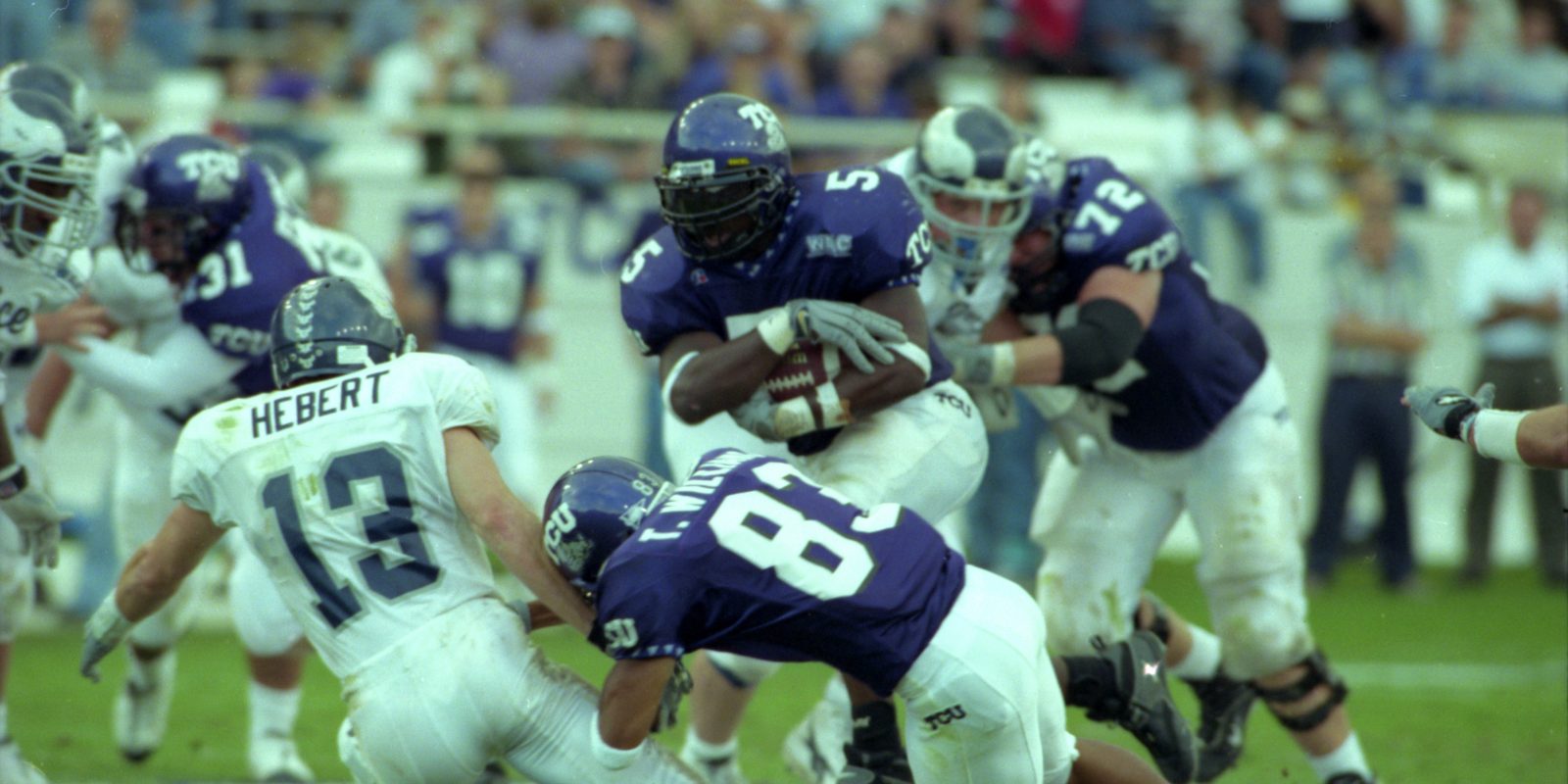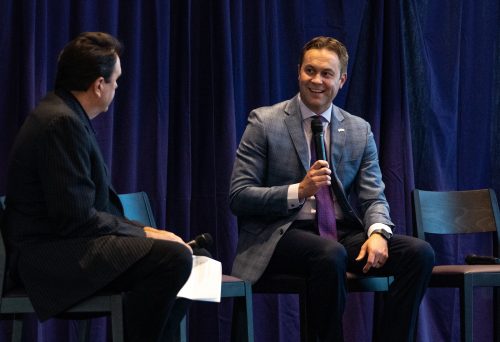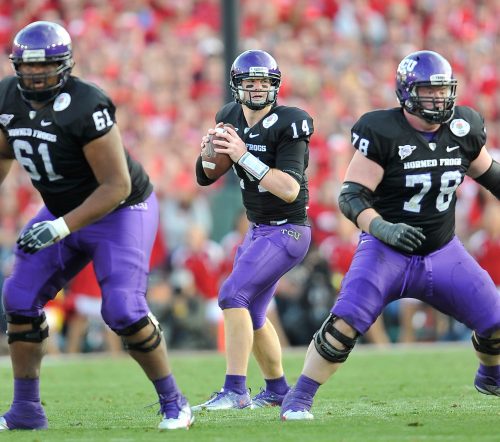
Courtesy of TCU Archives
Athletes Cash in on Names, Images or Likenesses
After NCAA changes, a TCU program helps student-athletes build a brand.
TCU student-athletes can now cash in on their names, images or likenesses — or NIL — thanks to a July 2021 NCAA ruling. Before the ruling, Horned Frog athletes couldn’t even secure paid internships that were available to other students. The NCAA’s policy was enacted as an unfunded mandate for schools to manage.
Through the fall 2021 semester, 283 TCU student-athletes were enrolled in the university’s Neeley NIL program to help them monetize their opportunities, said Rodney D’Souza, head of the program with Antonio Banos. It is a partnership between two of TCU’s top brands: TCU Athletics and the Neeley School of Business’ Institute for Entrepreneurship and Innovation, for which D’Souza is managing director.
“Our program entails workshops, one-on-one sessions, vetted Neeley and TCU resources, certifications as well as classes focused on NIL,” D’Souza said. “The program also is structured to provide coaches the key components needed to enhance their programs — recruit, activate and retain student-athletes.”

Jeremiah Donati, director of intercollegiate athletics, talks about TCU’s Scaled to Succeed program that will help student-athletes take their brands to the next level and optimize earning potential. Courtesy of TCU Athletics
TCU football coach Sonny Dykes made it clear how much of an impact the NCAA’s ruling is having on recruitment of the 2022 class. He hinted that the University of Texas gained a competitive advantage through Horns With Heart, a program started by Longhorn boosters that pays offensive linemen $50,000 per year to participate in charitable events, according to a Dec. 16, 2021, article posted by the Fort Worth Star-Telegram.
“Name, image and likeness was not supposed to be an enticement to attend a university. But like everything else, you draw conclusions and connect the dots,” Dykes said during his early signing day news conference Dec. 15. “Well, they’re paying this guy, let’s say $50,000 a year, all right, well, ‘I play that position. They’re going to pay all the guys $50,000 a year, so that means I’m going to get $50,000.’ You sit there and think, ‘If I’m there five years and make $50,000 a year, it’s a quarter-million dollars.’ That would be an enticement for anybody.”
Within hours of his comments, Frog supporters announced a new program, Think NIL, aimed at “facilitating and maximizing NIL opportunities” by connecting young athletes with local, regional and national businesses and brands, according to the Star-Telegram report.
“I think the opportunity for the student- athlete is to pursue career opportunities during their collegiate career that weren’t available to them before,” said Kevin Davis, a former baseball and basketball sports agent who spent 12 years managing recruitment for TCU’s Executive MBA program. Davis recently left TCU to become vice president of product for Game Plan, an education technology company that provides an e-learning and career platform for athletes.

Andy Dalton looks to make a pass during the 2011 Rose Bowl against Wisconsin. Courtesy of TCU Athletics
The NCAA still prohibits pay-for-play and improper inducements tied to choosing to attend a particular school. Those rules remain in effect.
“The problem with the ruling is that it lacks definition,” said Sean W. Richards ’02, a former TCU wide receiver who is now an Executive MBA student in the Neeley School of Business. “It doesn’t seem that there are many boundaries outside of the fact that, you know, the university is supposed to help you. People that work in the athletic department aren’t supposed to guide you to deals, but outside of that, it just lacks definition, and it’s going to need regulation.”
Since leaving the gridiron, Richards has built a career helping athletes and the schools they attend better brand themselves. He was a chief strategy and innovation officer at Fusion Sports Group before starting his own company, Four Four Flat.
Richards said he can’t help but think about the former Horned Frogs who could have scored big not only for themselves but also for the university. “With a guy like LaDainian Tomlinson ’05 or Andy Dalton ’10, I don’t even know if you can quantify” how valuable they’ve been over the years as ambassadors for TCU and its programs, he said.

Your comments are welcome
Comments
Related reading:
Research + Discovery
When Celebrities Talk …
Kristie Bunton examines the ethics of athletes and entertainers speaking out.
TCU Presents: Celebrating Billy Tubbs
People who knew the head basketball coach best reflect on the tough workouts and memorable moments.
Features, Sports: Riff Ram
Players and Fans Loved Frenetic Billy Ball
Under charismatic coach Billy Tubbs, TCU men’s basketball thrilled a city and led the nation in scoring.